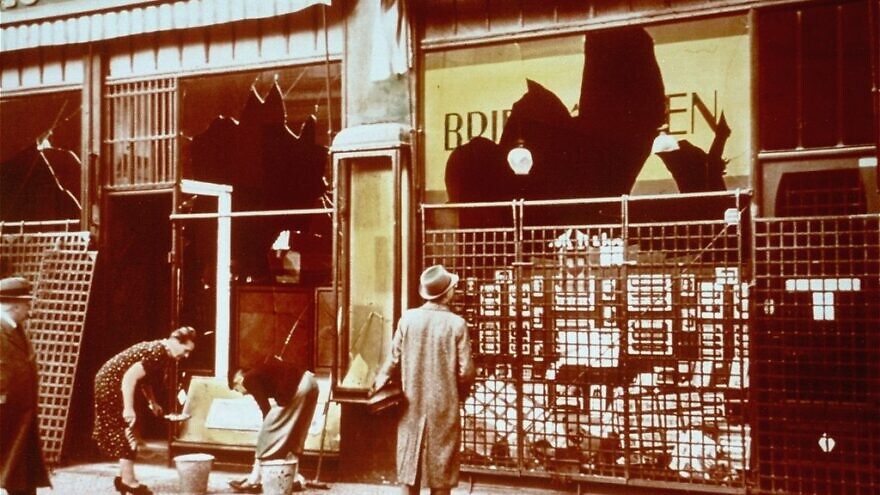This week, Jewish communities around the world remember the 83rd anniversary of Pogromnacht (Kristallnacht), when the Nazis and their supporters carried out an anti-Jewish pogrom throughout Germany, decimating thousands of Jewish-owned businesses, neighborhoods and synagogues, and forcing as many as 30,000 Jews into concentration camps, never to return. Authorities sanctioned and even participated in the annihilation, marking a turning point in the state-organized persecution of European Jewry and what many historians consider to be the beginning of the Holocaust.
On this anniversary, we honor the lives and sacrifices of those plagued by anti-Semitic violence and recommit to the fight against anti-Semitism in all its forms. We must recognize that the infamous pogrom resulted in more than just broken glass. It serves as a dark warning—a sign of where anti-Semitism can lead when left to fester in the shadows. The memory of the victims of this atrocity, and the legacy of its survivors, cannot be allowed to fade.
The murders at the Tree of Life synagogue in Pittsburgh and the Chabad of Poway synagogue near San Diego, coupled with attacks against rabbis in New York and Boston, have the American Jewish community more worried than ever about the pervasive threat of anti-Semitism. Even during a global pandemic, we bore witness to the increased targeting and harassment of American Jews, which intensified during engagements between Hamas terrorists and the Israel Defense Forces during the 11-day conflict in May. The vandalization of U.S. synagogues with Nazi and white-supremacist slogans and imagery, as well as the recent desecration of a mock Torah scroll at a George Washington University fraternity, reveal a painful truth. Anti-Semitism is not just back; it never went away. It mutated and took hold in different manifestations, becoming a weapon for extremists on the right and the left.
One critical part of this work has been to define what anti-Semitism means today. We have continued to engage this year with our member organizations, representing the core of the American Jewish community, to raise awareness of the groundbreaking International Holocaust Remembrance Alliance (IHRA) working definition of anti-Semitism, which has been adopted by local and national governments, organizations, businesses, universities and sports teams around the world.
The IHRA definition provides a framework that holds the powers that be accountable, stating: “Antisemitism is a certain perception of Jews, which may be expressed as hatred toward Jews. Rhetorical and physical manifestations of antisemitism are directed toward Jewish or non-Jewish individuals and/or their property, toward Jewish community institutions and religious facilities.”
It gives further context to the anti-Semitism of today by laying out examples of what could reasonably constitute anti-Semitic behavior. These include instances where Israel is treated with a double standard, where Israel’s fundamental legitimacy as a nation is questioned and where Israel is demonized, such as comparing Israeli actions to the genocidal policies of Nazi Germany. The recent censuring of three Jewish groups by the D.C. chapter of the Sunrise Movement over their support for Israel speaks directly and loudly to the crisis at hand and the need for the IHRA definition. Anti-Zionism routinely leads to anti-Semitism and the singling-out of Jews in the community. It also inherently discriminates against the overwhelming majority of American Jews who identify Israel as the Jewish homeland. The IHRA framework provides a clear context to distinguish when criticism of Israel veers into anti-Semitism and when anti-Semitism motivates anti-Zionism.
Too often, anti-Semitism goes unchallenged or even unnoticed. The adoption of the IHRA definition in civil society by Jews and non-Jews alike affirms a commitment to our community and a willingness to confront antisemitism, hatred and bigotry now and in the future. It remains incumbent for each and every one of us to do what we can to combat these forces, which threaten our very existence.
William Daroff is CEO of the Conference of Presidents of Major American Jewish Organizations. In that capacity, he is the senior professional guiding the Conference’s agenda on behalf of the 53 national member organizations, which represent the wide mosaic of American Jewish life.


























